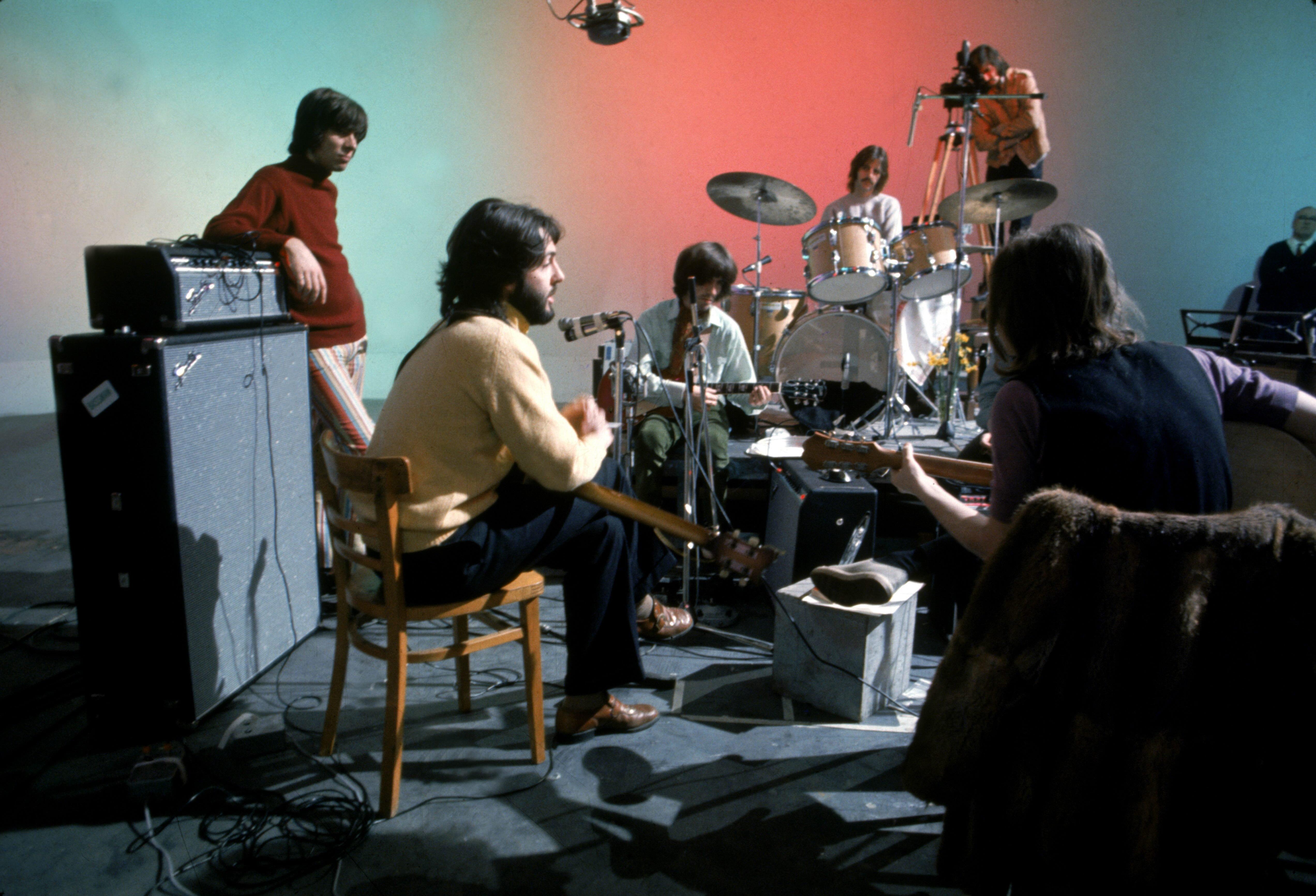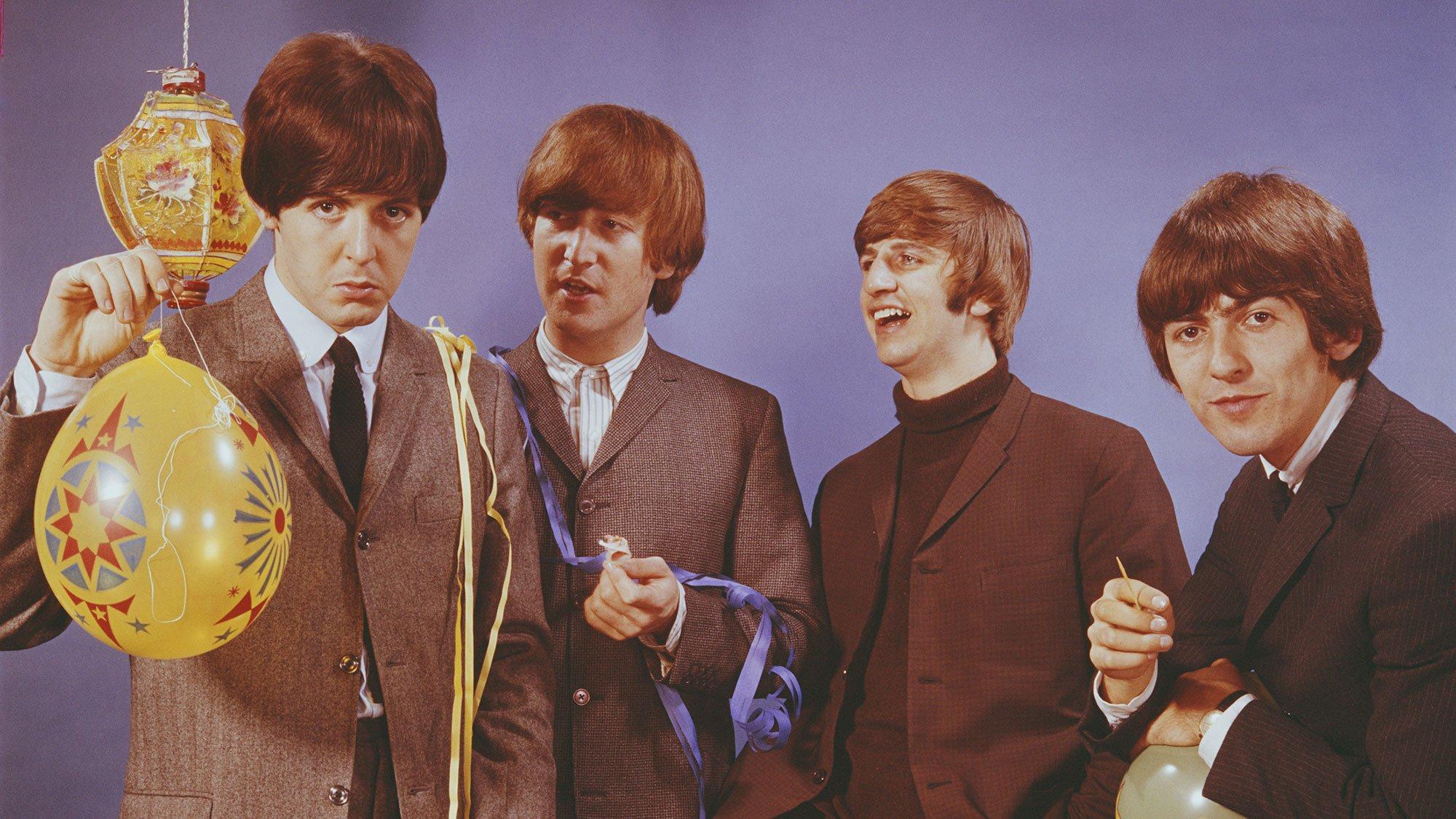What is about the Beatles' Let it Be sessions that continues to bedevil diehards?
Even after their aperture was tremendously widened with Get Back — Peter Jackson's three-part, almost eight hour, 2021 doc — something's always been missing. Because it was meant as a corrective to a film that, well, most of us haven't seen in a long time — if at all.
That's Let it Be, the original 1970 documentary on those contested, pivotal, hot-and-cold sessions, directed by Michael Lindsay-Hogg. Much of the calcified lore around the Beatles' last stand comes not from the film itself, but what we think is in the film.
Let it Be does contain a couple of emotionally charged moments between maturing Beatles. The most famous one: George Harrison getting snippy with Paul McCartney over a guitar part, which might just be the most blown-out-of-proportion squabble in rock history.
But superfans smelled blood in the water: the film had to be a locus for the Beatles' untimely demise. To which the film's director, Michael Lindsay-Hogg, might say: did we see the same movie?
"Looking back from history's vantage point, it seems like everybody drank the bad batch of Kool-Aid," he tells GRAMMY.com. Lindsay-Hogg had just appeared at an NYC screening, and seemed as surprised by it as the fans: "Because the opinion that was first formed about the movie, you could not form on the actual movie we saw the other night."
He's correct. If you saw Get Back, Lindsay-Hogg is the babyfaced, cigar-puffing auteur seen throughout; today, at 84, his original vision has been reclaimed. On May 8, Disney+ unveiled a restored and refreshed version of the Let it Be film — a historical counterweight to Get Back. Temperamentally, though, it's right on the same wavelength, which is bound to surprise some Fabs disciples.
With the benefit of Peter Jackson's sound-polishing magic and Giles Martin's inspired remixes of performances, Let it Be offers a quieter, more muted, more atmospheric take on these sessions. (Think fewer goofy antics, and more tight, lingering shots of four of rock's most evocative faces.)
As you absorb the long-on-ice Let it Be, here are some lesser-known facts about this film, and the era of the Beatles it captures — with a little help from Lindsay-Hogg himself.
The Beatles Were Happy With The Let It Be Film
After Lindsay-Hogg showed the Beatles the final rough cut, he says they all went out to a jovial meal and drinks: "Nice food, collegial, pleasant, witty conversation, nice wine."
Afterward, they went downstairs to a discotheque for nightcaps. "Paul said he thought Let it Be was good. We'd all done a good job," Lindsay-Hogg remembers. "And Ringo and [wife] Maureen were jiving to the music until two in the morning."
"They had a really, really good time," he adds. "And you can see like [in the film], on their faces, their interactions — it was like it always was."
About "That" Fight: Neither Paul Nor George Made A Big Deal
At this point, Beatles fanatics can recite this Harrison-in-a-snit quote to McCartney: "I'll play, you know, whatever you want me to play, or I won't play at all if you don't want me to play. Whatever it is that will please you… I'll do it." (Yes, that's widely viewed among fans as a tremendous deal.)
If this was such a fissure, why did McCartney and Harrison allow it in the film? After all, they had say in the final cut, like the other Beatles.
"Nothing was going to be in the picture that they didn't want," Lindsay-Hogg asserts. "They never commented on that. They took that exchange as like many other exchanges they'd had over the years… but, of course, since they'd broken up a month before [the film's release], everyone was looking for little bits of sharp metal on the sand to think why they'd broken up."
Recently, Ringo Starr opined that there was "not a lot of joy" in the Let it Be film; Lindsay-Hogg says Starr framed it to him as "no joy."
Of course, that's Starr's prerogative. But it's not quite borne out by what we see — especially that merry scene where he and Harrison work out an early draft of Abbey Road's "Octopus's Garden."
"And Ringo's a combination of so pleased to be working on the song, pleased to be working with his friend, glad for the input," Lindsay-Hogg says. "He's a wonderful guy. I mean, he can think what he wants and I will always have greater affection for him.
"Let's see if he changes his mind by the time he's 100," he added mirthfully.
Lindsay-Hogg Thought It'd Never Be Released Again
"I went through many years of thinking, It's not going to come out," Lindsay-Hogg says. In this regard, he characterizes 25 or 30 years of his life as "solitary confinement," although he was "pushing for it, and educating for it."
"Then, suddenly, the sun comes out" — which may be thanks to Peter Jackson, and renewed interest via Get Back. "And someone opens the cell door, and Let it Be walks out."
Nobody Asked Him What The Sessions Were Like
All four Beatles, and many of their associates, have spoken their piece on Let it Be sessions — and journalists, authors, documentarians, and fans all have their own slant on them.
But what was this time like from Lindsay-Hogg's perspective? Incredibly, nobody ever thought to check. "You asked the one question which no one has asked," he says. "No one."
So, give us the vibe check. Were the Let it Be sessions ever remotely as tense as they've been described, since man landed on the moon? And to that, Lindsay-Hogg's response is a chuckle, and a resounding, "No, no, no."
The Beatles' Final Song: Giles Martin On The Second Life Of "Now And Then" & How The Fab Four Are "Still Breaking New Ground"


.webp)






